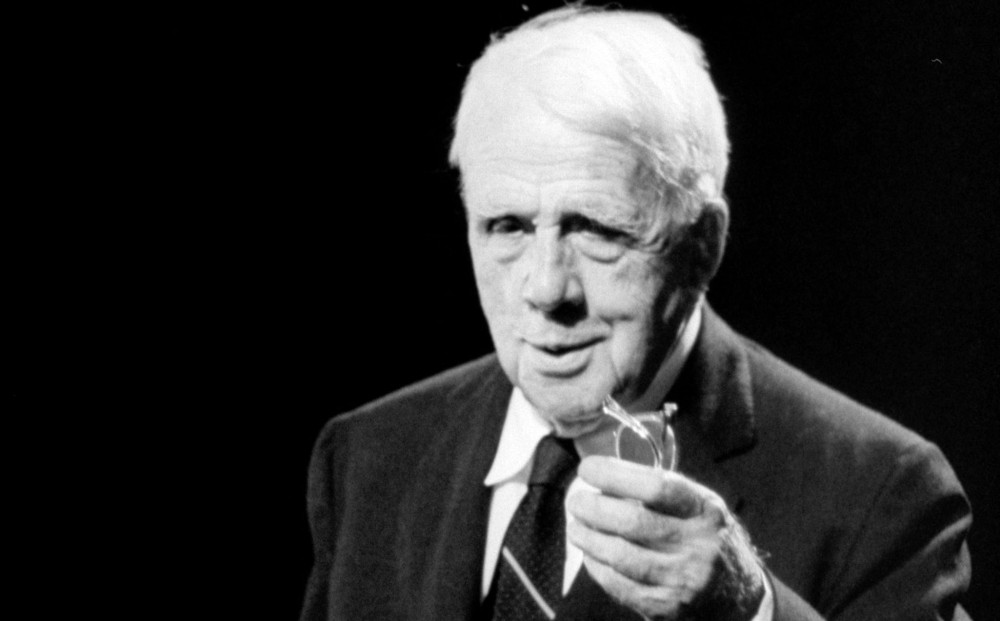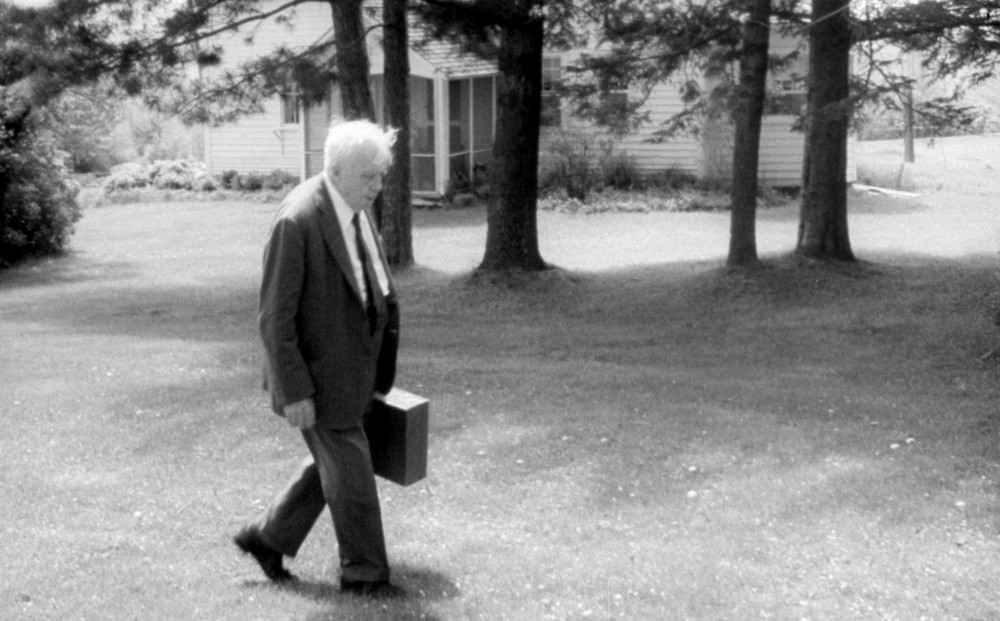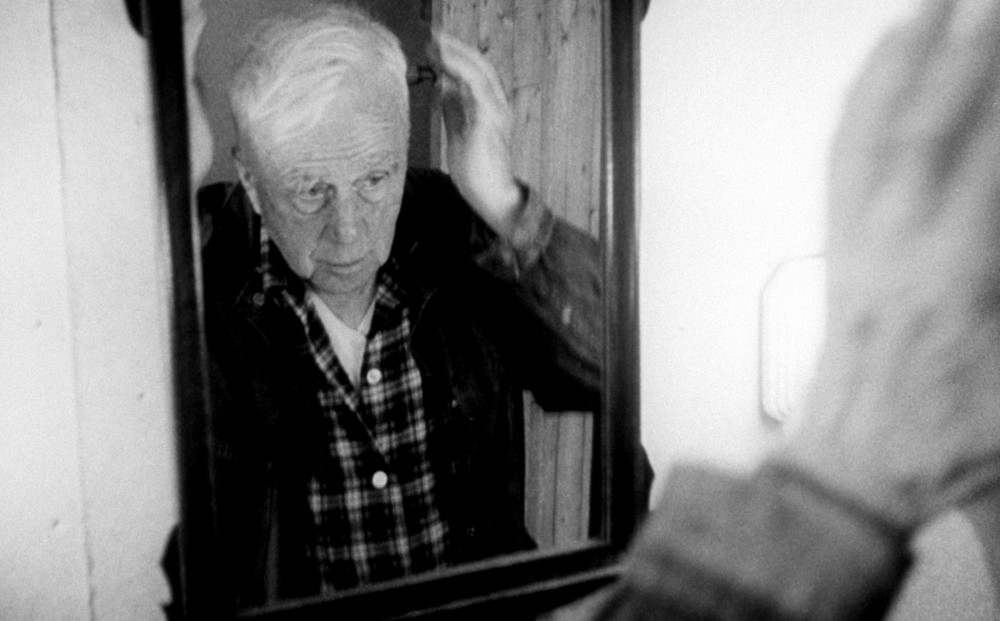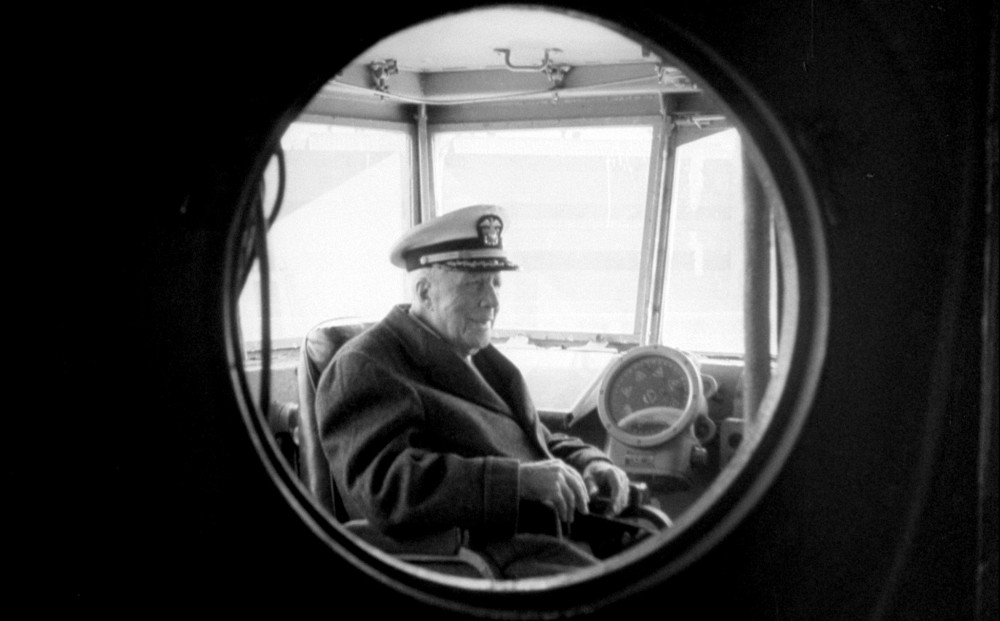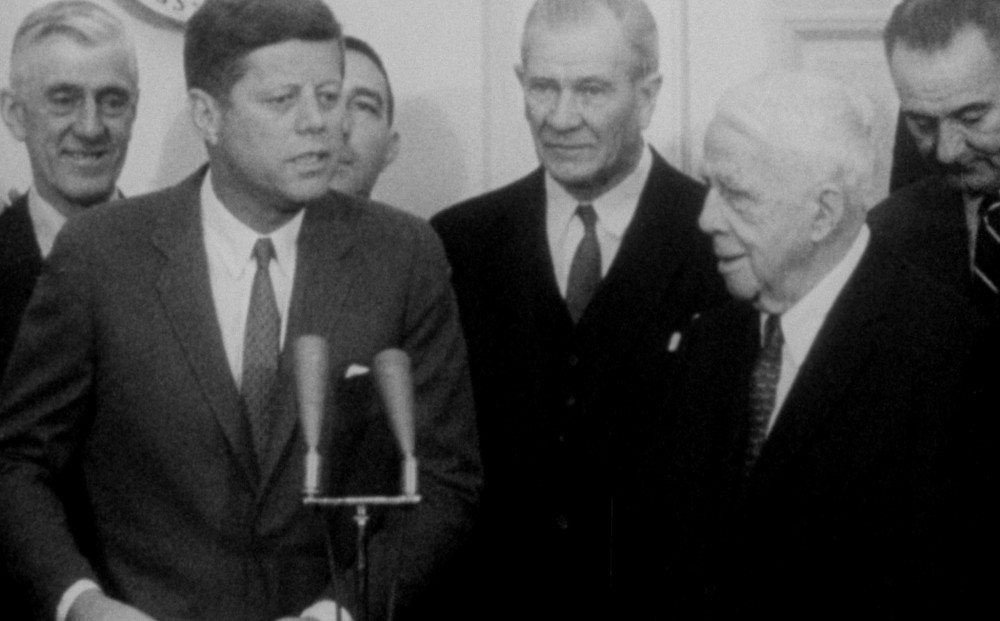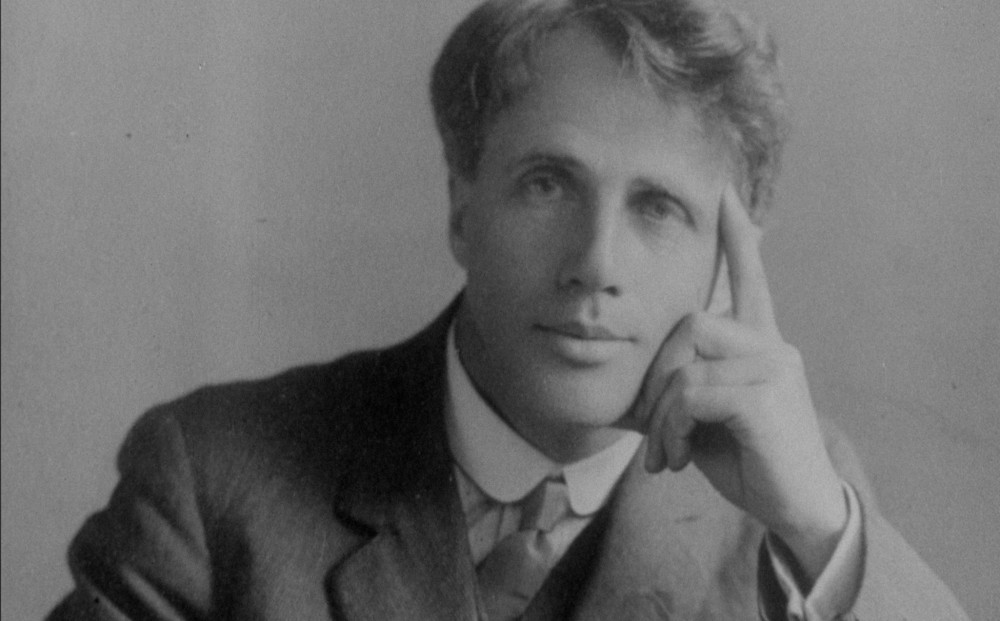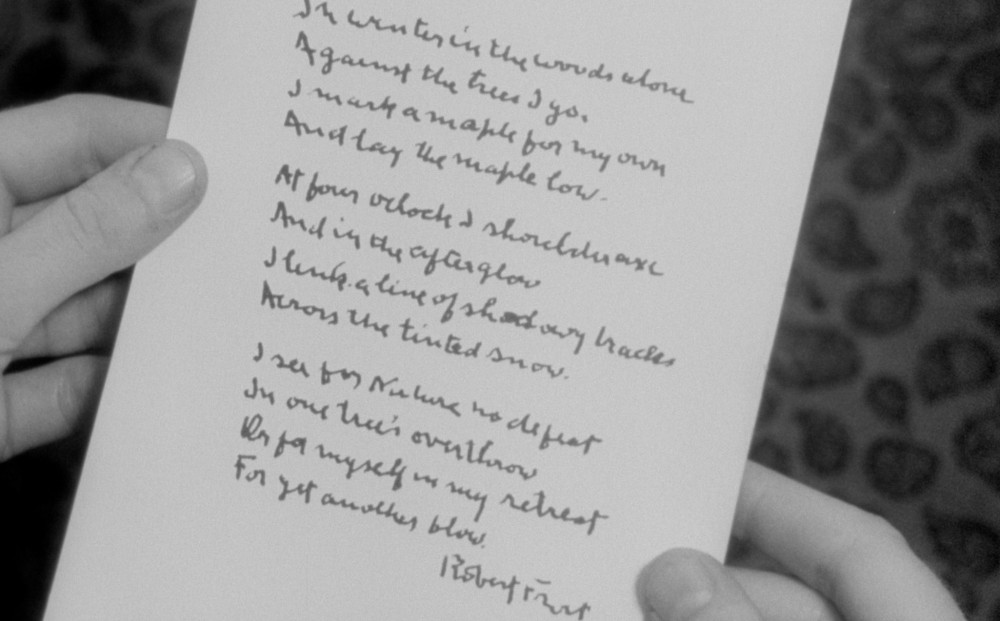ROBERT FROST: A LOVER’S QUARREL WITH THE WORLD
2:40
Saturday, October 12
(1962, Shirley Clarke) A portrait of Robert Frost, shot shortly before his death, with the 88-year-old poet at home in rural Vermont, in D.C. to receive an award from President Kennedy, and at speaking engagements at Amherst and Sarah Lawrence College. Winner of the Academy Award for Best Documentary. DCP. Approx. 41 min.
Plus shorts In Paris Parks (1954) and Christopher and Me (1960), a collaboration between Richard Leacock and Clarke, made in Vermont, and featuring a song by D.A. Pennebaker (his only published piece of music). DCP.
Reviews
“Shirley Clarke’s extraordinary portrait-film Robert Frost: A Lover’s Quarrel with the World, takes its time, and gives the poet his time. Clarke films Frost at his rural home, at heavy work in his garden; sitting and talking at his table; and onstage, in performance, lecturing for a fee, wittily and flamboyantly, reciting his poetry even as, in private, he expresses his own doubts regarding that public side of his career. Frost addresses such piercing subjects as his own freethinking politics, his exasperation with literary education, his irresistible drive for solitude despite his public veneration, Ezra Pound’s Nazi sympathies, and the inevitable misunderstandings that his even-toned, popular-voiced poetry arouses—about the extreme furies and dark despairs that only his most discerning readers, at the time, perceived in it. Clarke keeps Frost’s face onscreen for extended times, and the film is dominated by his crackling, raspy, tremulous voice; in its blend of performance and self-revelation, it plays almost like a prelude to her subsequent Portrait of Jason.”
– Richard Brody, The New Yorker

